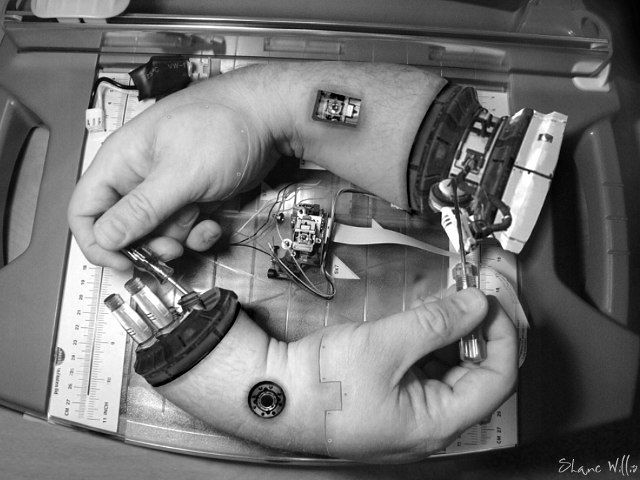The neural basis of empathy and coordination
(Christian Keysers)
1.- feeling the intentions of others
The neurons involved in a concrete movement (grasping something), surprisingly, respond also when the action is seen (about the 10% of the neurons – mirror neurons-). Interesting: you can «run simulations» in your mind and the brain behaves as if the real action is being performed. But, what happened if you see a not human (f.i. a robot) doing the same action?. The active areas in the brain of the observer are the same. That is, your brain is «learning» how to do this action.
How about sounds?. The set of neurons dedicated to do, see or hear something is different. In humans, experiments done where about to hear the result of actions performed by the hands or by the mouth (clearly separated in the brain). The correspondent motor areas are not activated, but the area that responds to the stimuli does.
SO, how do we coordinate each other? Because the coordinate system of the other doing an action is not our own coordinate system and the active area in the brain is different. The mirror system transform back and forth between sensory an motor representations, providing the basis for optimal coordination of observed and executed actions
2.- why do we cooperate?
It is related with emotional behavior. Experiments done with pleasant and disgusting smells. Again, the response of the brain is very similar when we feels disgust or when we see someone felling disgusted (by their expression in the face) And impairing simulation with real stimuli can damage the brain (so we cannot properly distinguish the correct emotion/sensation). Emotional simulation and empathy are linked too? It seems to be, and it is not exclusive for disgust. Pain in self and in others overlaps, but disgust and joy overlaps too, so it is difficult to identify the correct emotion. Any way, this facts motivate us to cooperate: we share the same things than others (empathy).
Cooperation and generosity
(Paul van Lange)
Generosity: behaving more cooperatively than the others. Noise refers to unintended errors that affect interaction outcomes. Noise is a matter of fact in social systems and undermines cooperation. But generosity can (or not) cope with noise.
To understand social situations one needs to understand dependence, interests and information availability (al least).imperfect information appears in partner preferences or discrepancies about outcomes and intentions (why he’s not responding my emails?).
But the amount of generosity to apply has to be biased. The optimal balance between reciprocity, generosity o stingy has to be found (e.g. tit-for-tat: nice, forgiving, retaliatory and clear…. but it does not repair)
After a lot of results, seems that, under negative noise, generosity (i) build trust, (ii) pair well with reciprocity, and (iii) -I missed this one-. Besides: communication helps (when noise happens, inform the other -say sorry-); individuals copes with noise better than representatives and empathy is effective.
NOTA: ¿que ocurre si se introduce la generosidad como un factor más en el demostrador mWater a la hora de gestionar las agrupaciones de usuarios autoorganizadas? Parece que puede ser una buena variable para mantener una gestión óptima en el problema de los comunes.

